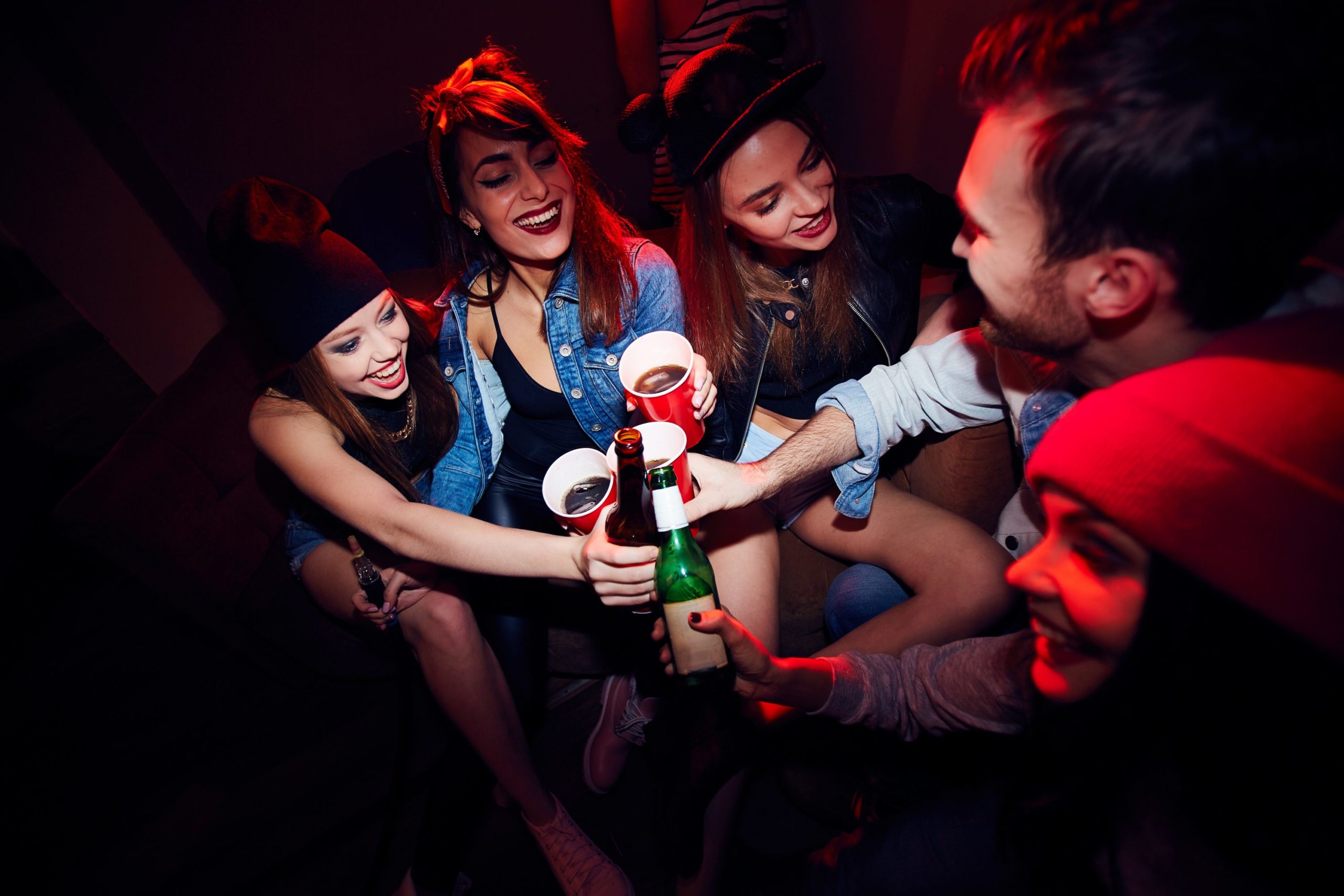The first thing I learnt at university was that anything could be used as a mixer. Hold your Ribena’s close, my friends: my sweet squash was taken as a token gift to another flat’s pre’s on day 2, never to be seen again. I could
almost see it evaporating from my flatmate’s hungover forehead the next day… too many vodka-ribenas, it seems.
Because, during freshers week, alcohol was our 6th flatmate. We socialised over drinks, did shots in clubs and went to events where alcohol was the centrepiece. Us law students stumbled back from Pryzm at 3 pm after our
first social, which might as well have been an introduction to the Drunk and Disorderly offence.
Yet I can’t imagine it any other way. Alcohol offset social anxiety. It made it easier to break the ice and meet new people, which is the purpose of Fresher’s week and a crucial part of university. Not to mention that alcohol is- for many people- enjoyable to consume.
It’s all fun and games, right? A hangover isn’t going to kill you. And a bit of overconsumption here and there doesn’t mean that you have an unhealthy relationship with alcohol.
Yet, drinking isn’t everyone’s cup of tea. I don’t need to list the potential health problems associated with alcohol- because I’m not your mother. I don’t need to remind you that certain religions and cultures don’t advocate drinking- because you don’t live under a rock. And I don’t need to tell you that it’s a personal choice. You know that.
Yet does the university? We are Leeds, home to the Otley run. Nowhere else in Britain have I seen so many people dressed up as Mario/ Fanta /bananas, traipsing from pub to pub, increasingly inebriated by the hour. Beer cans pile up in flat kitchens, Echo Falls leaves its acidic footprint in mouths and VKs are chucked across clubs in a moment of drunken euphoria. Alcohol is a facilitator of many of the fascinating (arguably reckless) phenomena that Leeds holds dear.
But at what point does our drinking culture become damaging?
Leedsfess is a confessions page for University of Leeds students. Under the veil of anonymity, many people have come forward and bravely shared tales of alcohol addiction and binge drinking, in recent weeks.
In one post, someone had written: “the drinking culture in Leeds is fun, and we all have a good time drinking, but don’t promote it. People have serious drinking problems and think they’re normal for drinking every day because we laugh about it and think “oh it’s just what students do.” It’s so unsafe to get into that mentality.”
A further post told of daily drinking, finishing with “wondering if any other student has felt like this because I’ve never heard of anyone my age being an alcoholic”.
(Leedsfess facebook page)
In the comments under another post, I read:
“I think we need to normalize how toxic the drinking culture and expectations are for young people, especially students.”
Alcohol is harmful. In 2017, there were 7551 alcohol-related deaths in the UK. Perhaps we are desensitised to morbid statistics after the last 6 months. But 7,551 deaths were caused by the same ‘harmless’ beverage we invite into our flats and revolve our lives around. Alcohol can be consumed safely, in moderation. But when excessive drinking is encouraged from the ripe age of 18, I worry that it creates bad habits for the future. It is a slippery slope into alcoholism, and a total myth to think that only older people struggle with alcohol addiction.
A spokesperson for Alcohol Concern said: “Habituation is the real issue. Some people can just leave heavy drinking behind at university and get on with the rest of their lives but people who’ve got a propensity to problem drinking – that can be what kicks them off. More needs to be done on campuses to keep an eye out for students who are succumbing to addiction.”
Yet even people who don’t drink are being harmed by a decadent drinking culture. When events revolve around alcohol, non-drinkers are not being facilitated. I spoke to a member of High On Life society, the University of Leeds’ alcohol-free society. They told me “I feel like the people around me think I’m boring or a party pooper when I dont drink.”
“sometimes people are uncomfy inviting me to parties as they know I dont drink”. It is a problem- the fact that drinking is so normalised that not drinking is seen as unusual. Thus the non-drinker may end up feeling like an outsider. You can still go clubbing without alcohol- of course- but the experience is so frequently conducted drunk that it would be unusual to attend sober. There are dedicated societies for non-drinkers such as “High On Life” society at Leeds that many find invigorating and refreshing. However, it would be great if non-drinkers could be better facilitated at all societies, and if fewer events revolved around alcohol. Some sports societies hit the pubs very hard-initiation style in Freshers week. This can deter members completely.
Furthermore, for those of us who do drink, drinking is so normalised that it is hard not to bow into over-consumption or increase the frequency of drinking. Clubbing is not just on a Friday night in Leeds. You can find a club any night of the week. Therefore it was easy for alcohol to increase its presence in daily life. Our vibrant city is a blessing and a lure. Alcohol is everywhere, and moderation is not.
Alcohol isn’t going anywhere. Freshers week isn’t going to be a sober one, just because it’s not taking place in traditional circumstances. And societies aren’t going to make all their activities alcohol free. Because drinking is ingrained in the university experience, for better or for worse.
header credit: The Drinks Business

